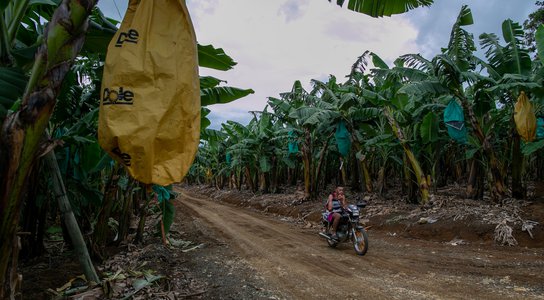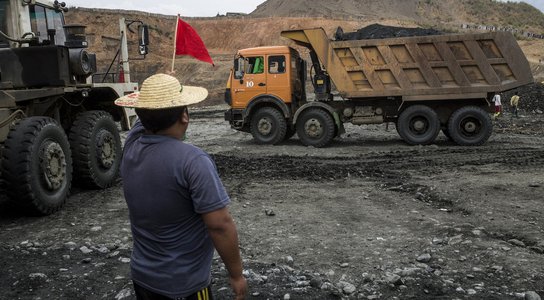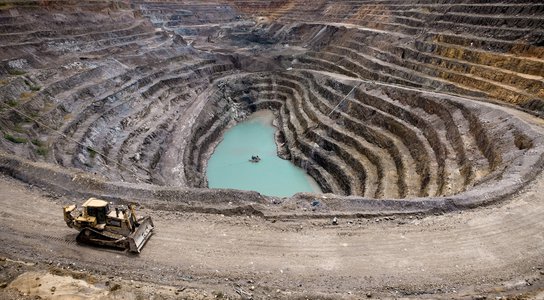Big news from Brussels last week: the European Commissioner for Justice announced that he is ready to act to make business accountable for its impact on people and the planet, and to ensure that Europe delivers on the Green Deal, by introducing legislation on mandatory sustainable due diligence.
This blog explains how it happened, what it means and what comes next.
What happened?
Last week, Global Witness was invited to speak at a high level online event hosted by European Parliament Vice President Heidi Hautala and the Responsible Business Conduct Working Group. With a list of 20 speakers and over 500 online participants, the event’s central focus was the European Commissioner for Justice, Didier Reynders, who joined to present the findings of the Commission Study on due diligence requirements through the supply chain.
Right in his opening speech, the Commissioner cut to the chase and made his big announcement that he is committed to introducing EU rules in 2021.
For NGOs including Global Witness, this was a milestone moment that follows significant campaigning calling for action at an EU level. And it was also an opportunity for us, together with supportive Members of the European Parliament (MEPs), to let the Commissioner know what we expect from this legislation.
But most importantly, it’s now clear that the Commissioner has officially fired the starting gun on the road to EU rules on mandatory corporate due diligence.
Why is this so important?
Global Witness has repeatedly exposed how businesses and their value chains are linked to a range of abuses, including the murder and intimidation of land and environmental defenders, continued deforestation, minerals that fuel and fund conflict, and grand-scale corruption. We have long advocated for mandatory corporate due diligence rules to tackle these problems and the EU Commissioner’s announcement is a welcome step forward.
Due diligence is the process by which businesses, must identify, prevent, mitigate and publicly report on human rights, environmental and corruption risks linked to their global operations, subsidiaries or value chains. It is important that any due diligence requirements also include meaningful sanctions and penalties for a failure to avoid negative impacts, victims of corporate abuse can seek justice and companies are held liable for any harms caused.
Strong mandatory due diligence rules at the EU level and across the world, will help to hold businesses accountable for the adverse impacts of their activities throughout their value chains.
These measures are needed now more than ever. Companies and those who finance them need to play their part in helping tackle climate breakdown, the ecological crisis and human rights abuses. The Covid-19 crisis has also laid bare the precarious nature of global supply chains and shown just how reliant all countries and people are on each other. It can no longer be business as usual. During this period of uncertainty and economic turbulence, strong EU rules would help to ensure robust, resilient and sustainable value chains and help companies address the environmental, social and governance issues they face.
For the EU to deliver on a sustainable future for everyone, corporate accountability must be front and centre.
What did the EU Commissioner announce?
While the Commissioner’s announcement was warmly welcomed, attention soon moved to the details of what he intended to include in this new law. When he elaborated on his vision for the legislation, here are some promising and noteworthy elements:
- The legislation will cover all businesses regardless of sector - so it should cover extractives, agribusiness, pharmaceuticals, finance, etc. This is important because no existing piece of regulation on corporate accountability has such a broad scope and will have such far-reaching impact;
- The law will compel businesses to assess a broad range of risks, from human rights to the environment to corruption. This means business will need to identify, prevent and mitigate where their activities could be linked to a myriad of harms, including deforestation, illegal land grabs, pollution, conflict minerals, slave labour, and bribery;
- There will be strict enforcement mechanisms– so the EU can monitor and hold business to account for any breaches, including potential civil and criminal liability;
- When drafting this new law, the Commissioner stated he will use the existing internationally recognised standards on how businesses can identify, prevent and mitigate their risks - the OECD Due Diligence Guidance for Responsible Business Conduct (OECD RBC Guidance) and the UN Guiding Principles on Business and Human Rights (UNGPs)
MEPs welcomed the Commissioners commitments, in particular the recognition that voluntary due diligence measures for corporates have clearly failed and it’s time to move to hard law. Civil society speakers also pushed the Commissioner to commit to introducing stringent liability and access to justice provisions in the legislation, as well as having effective enforcement. This would mean that victims of corporate abuse could bring cases in European courts and hold companies to account.
The other positive intervention was that the German Federal Ministry of Labour and Social Affairs confirmed its support for new EU rules and stated that corporate accountability will be a key political priority for the upcoming German Presidency of the EU from July – December 2020.
What did Global Witness question the Commissioner on?
Heartened by the Commissioner’s announcement, I used my intervention at the event to ensure that the issues Global Witness campaigns on were firmly on his agenda.
I took the (virtual) microphone and asked the Commissioner for clarity on two key issues.
The first question was whether the Commissioner’s cross-sectoral approach will include financial institutions. Global Witness has exposed the finance sector’s role in funding harmful business, showing how EU-based financiers backed six of the world’s most harmful agribusinesses to the tune of €7 billion, resulting in the continued destruction of the Amazon rainforest. Ensuring finance is in the scope of the law is therefore crucial for it to be effective. While he didn’t give a clear or committal answer on this specific point, he did reiterate that the proposed legislation would include all sectors, which could be taken as a positive sign.
Secondly, I asked for clarification that any new law will address corruption risks, along with human rights and environmental harms. While he avoided making any detailed commitments on this, he did state there should be no corruption in company value chains.
And what comes next?
While the headline commitment from the Commissioner is very welcome, now the real work begins on translating this commitment into legislation. Luckily, there are already some identifiable milestones ahead.
The Commissioner clearly stated that this commitment was part of the recovery to the ongoing Covid-19 pandemic and the European Green Deal. This suggests he intends to introduce new rules as a matter of urgency. The Commission is aiming to publish a public consultation in the coming months to get input from stakeholders and then bring forward a legislative proposal in 2021.
The European Parliament is expected to draft a report on corporate due diligence this year outlining their vision for a due diligence law and to ensure the Commision takes their view into account.
At Global Witness, we will continue to engage with the European Commission, Parliament and Council to campaign for a meaningful and impactful law that holds all companies accountable for their adverse impacts on people and planet.
We have outlined our key asks in this briefing and we look forward to continuing to campaign for these vital rules.
Preview image credit: Leon Yaakov, Flickr


